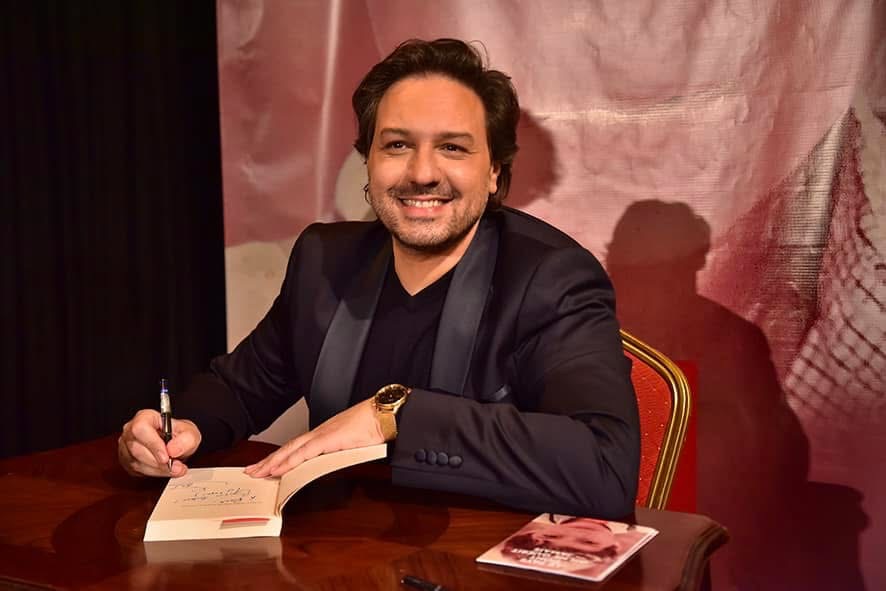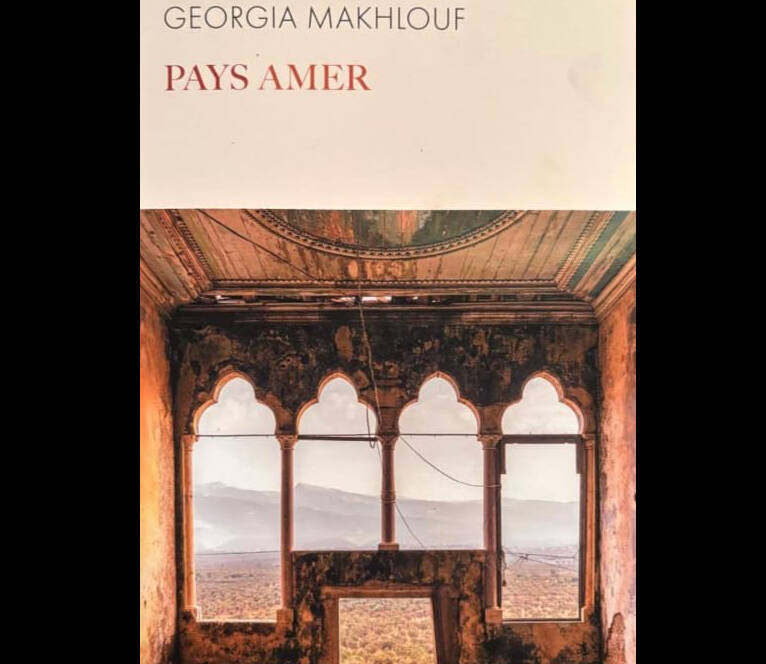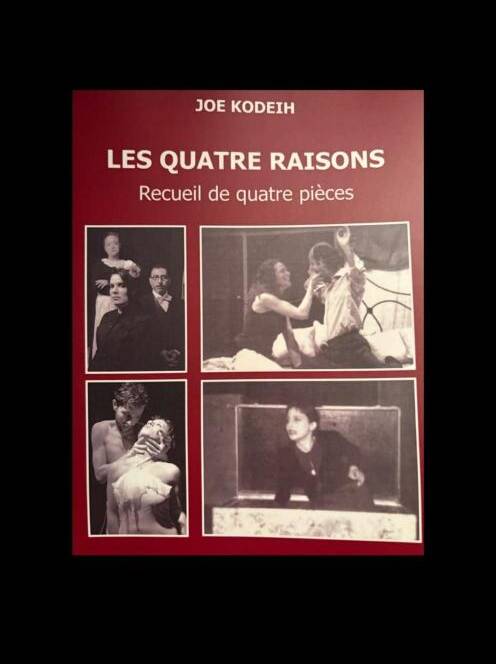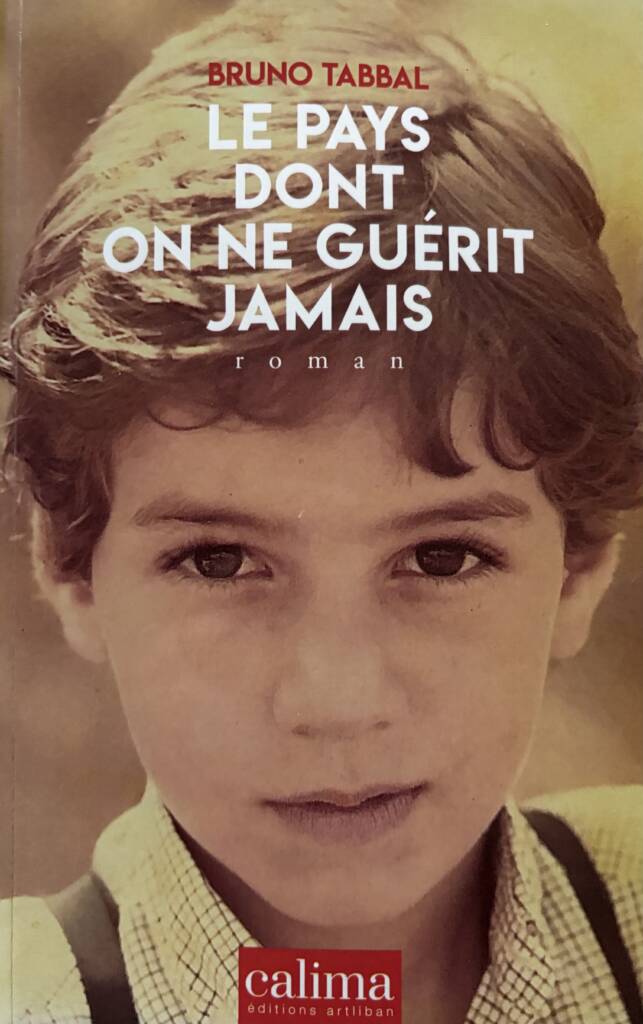
An Article by D. M. (783 words, 4 min. read)
Bruno Tabbal’s first novel, Le pays dont on ne guérit jamais (The Country from Which One Never Heals), was published in February 2025 by Editions Artliban-Calima. In this deeply personal work, the author paints a vivid picture of his childhood memories, exploring the lasting impact of war and resilience in a land torn by conflict.
Born in Beirut in 1978, Tabbal’s early years unfolded between a city ravaged by violence and a peaceful village in northern Lebanon, untouched by the horrors that gripped the capital. As war tore through the streets of Beirut, families fled to the mountains seeking refuge in their timeless beauty, where nature offered a reprieve from the destruction below. The mountains, untouched by conflict, became not only a sanctuary but a space for survival; a place where life could still have meaning amidst the surrounding chaos.
A true artist, Tabbal’s creative journey led him to the world of film and theater, where he has thrived as an actor, singer, and director. His passion for the Lebanese mountains, the landscape that shaped him, inspired him to create SNOUNOU (swallow in Arabic), an initiative focused on rural, cultural, and tourism development, in 2017. In 2015, he also published And Yet, an essay-diptych written in English.
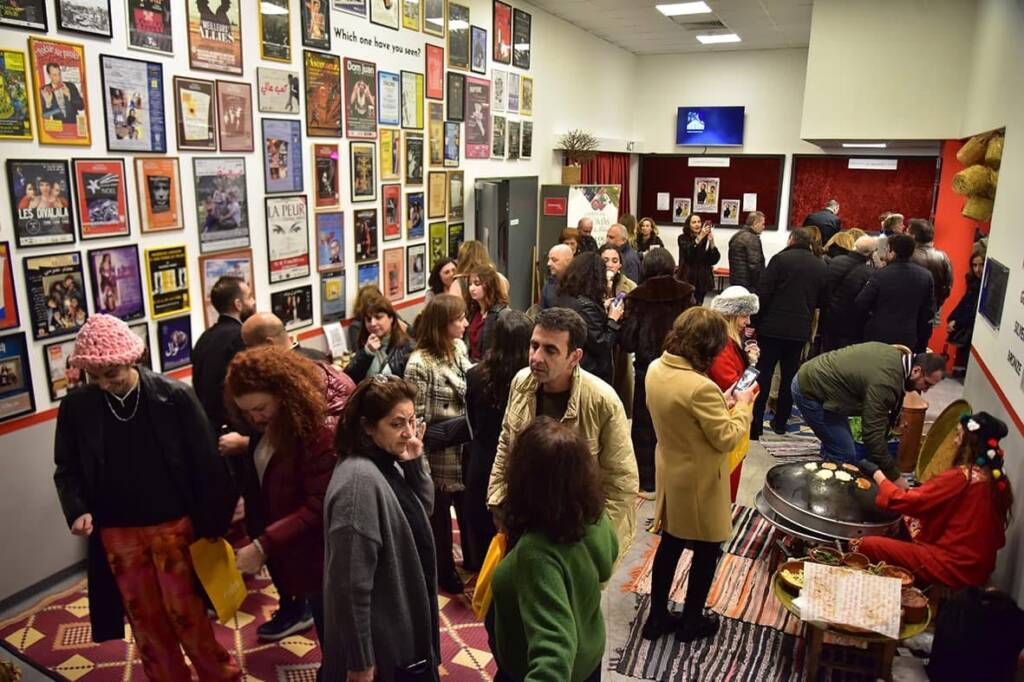
Through the pages of Le pays dont on ne guérit jamais, Tabbal masterfully draws readers back to an era where childhood was intricately intertwined with the brutality of war, where the echoes of conflict shaped the fates of all, and where the city, once a symbol of hope and prosperity, was reduced to suffering. The mountains, however, remained a place of refuge: a landscape that would shape the author’s understanding of love, life, and survival.
Tabbal’s writing style, eloquent yet accessible, reflects a profound connection with his readers. His love for the stage, the theater, nature, poetry, history, music, and words shines through in every passage. He creates a masterful parallel between the 19th-century era of the Mutasarrifate of Mount Lebanon and the present day, skillfully blending historical detail with the intimacy of daily life. His narrative unfolds like a theatrical performance, where past and present collide, and where the lives of historical figures interweave with the personal experiences of the author. The novel, in many ways, feels like a stage play, where the characters, both real and imagined, perform their roles across time.
Even the book’s launch was a testament to Tabbal’s artistic vision. Refusing a traditional signing event, he and his publisher, Nidale Haddad, invited their audience to Théâtre Monnot for an immersive theatrical experience. The event mirrored the novel’s structure, blurring the lines between reality and performance, past and present, allowing guests to step into the world he so carefully crafted.
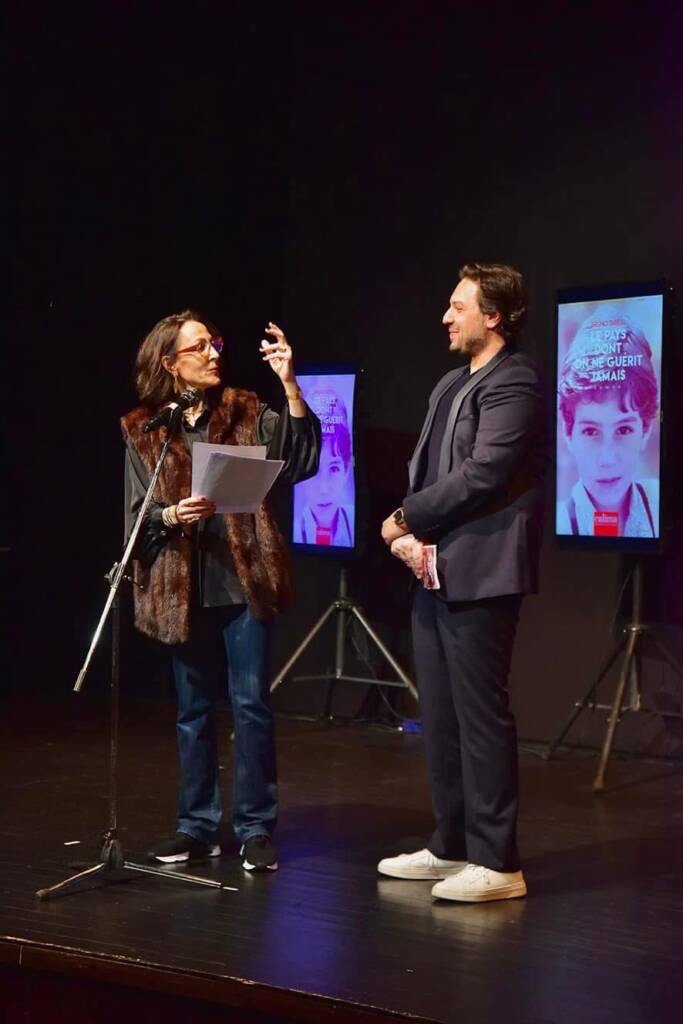
His parents, figures of unwavering resilience, are central to the story, embodying the enduring strength of the Lebanese spirit. They shielded their children from the horrors of war, providing them with a sense of normalcy, rebuilding their lives amidst the ruins of a country at war. Through their example, Tabbal learned that even in the most desperate circumstances, hope, resilience, and love can prevail. Their lessons would stay with him throughout his life, shaping his approach to art, to writing, and to the world around him.
The novel also blends history and everyday life with remarkable finesse, drawing on detailed, documented historical events to enrich the personal story of the author’s family. Tabbal’s passion for history is evident in his meticulous attention to detail, bringing the era of the Mutasarrifate of Mount Lebanon to life. Yet, alongside these historical accounts, he weaves the tender moments of family life, capturing the joys and struggles of growing up in a country at war.
As a young boy, Bruno finds himself captivated by the mystery of a great rock in his village, hidden beneath the church bell tower. A secret lies there, one that dates back to the era of the silk factories and the decline of the Ottoman Empire. In his search for answers, he unearths not only the history of his country but also the essence of his own identity as an artist. Perhaps, one day, Bruno will uncover this secret; perhaps the artist will once again take the stage. Perhaps, in time, the author’s words will touch all those who have known The Country from Which One Never Heals.
Through this novel, Bruno Tabbal reminds us of the power of memory, the weight of history, and the unbreakable spirit of those who live through adversity. His work stands as a tribute to the Lebanese people, to their resilience, and to their eternal hope, even in the face of suffering.
